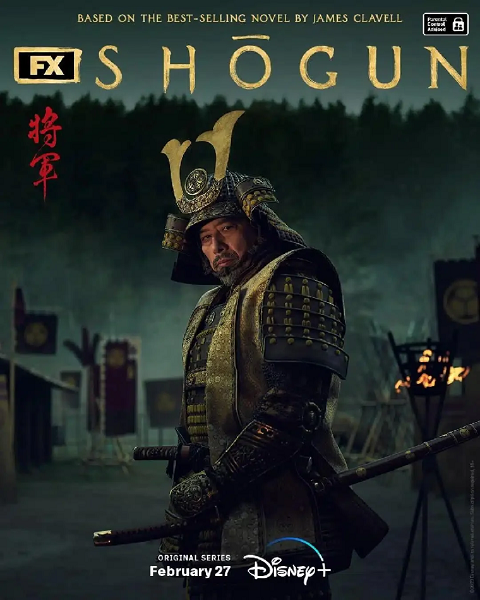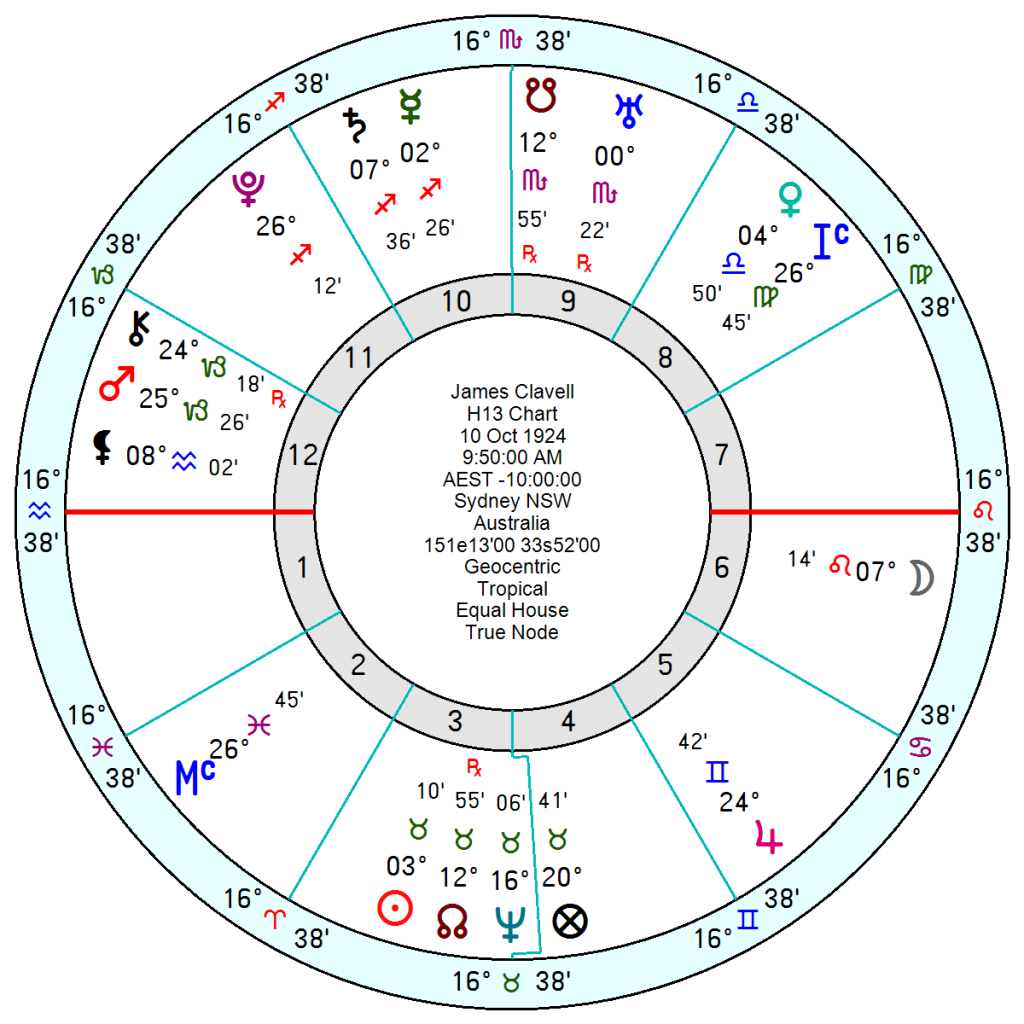



James Clavell, a brilliant storyteller, was a household name when his Asian saga of blockbuster novels and films – King Rat, Tai-Pan, Shogun – brought a new understanding of Japanese samurai and eastern culture into the western mainstream in the 1960s and 70s. He sank into obscurity after his death in 1994 but his work is now back with a TV remake of Shogun, described as a possible Game of Thrones replacement. Described as “ a mesmerising epic that goes big on the gore,” it follows an English sailor in 1600 landing in Japan who becomes the first samurai.
What is extraordinary is that Clavell was captured during World War Two and incarcerated in the notorious Changi jail in Singapore, where 14 out of 15 prisoners of war died of disease or malnutrition. Despite his brutal experiences he developed a fascination with his captors, finding their ruthlessness and rigid codes of honour both repellent and inspiring.
He was born 10 October 1924 9.50am Sydney, Australia with an English naval officer father and brought up in the UK. Only 18 when he ended up in Changi he survived there for four years. He said he adopted an attitude in which he dominated the environment so that it could not destroy him.’
After the war he started a long trek of breaking into the film business. But he did not talk of his wartime experiences until the early 1960s when he started to open up to his wife and sat down to write ‘King Rat’ about a POW camp. By this time he had written screenplays and directed a few movies. His subsequent novels enjoyed phenomenal sales throughout the world with Shogun in 1975 hitting a stratospherically large global audience. The TV series in the 1980s starring Richard Chamberlain had 30% of the US population glued to their seats with restaurants empty when it was shown.
In his private life, he fathered a love child whom he refused to acknowledge, who was later adopted by Marlon Brando, who funded a palimony lawsuit against Clavell on her behalf.
When he died a friend said “He’s a good man. In fact, he’s more good than nice. He doesn’t have time to be nice.”
He had a 10th house Libra Sun and Mercury square an intense and controlling Pluto in his 7th house. His Sun was in an optimistic sextile to Jupiter in his 12th which in turn was inconjunct his Pluto as well as being square his 4th house Moon Uranus in Pisces – pushily confident and adventurous. He had a showbizzy (and stubborn) Mars in Aquarius opposition Neptune with his Mars trine Saturn in obsessive Scorpio. His Uranus was on the focal point of a yod inconjunct Sun sextile Neptune making him wilful, unconventional, with a life full of fated changes of direction – and also a catalyst and a trailblazer. A hugely complicated man, dogged, controlling, lucky and optimistic.
He had a ‘leadership’ North Node in Leo in his global-communication 9th house so he was always going to make a significant difference. Which fits with his strong 13th harmonic chart pointing to an ability to make a breakthrough by introducing Japanese warrior culture to mass audiences. His writer’s 21st harmonic was strong as was his leaving-a-legacy-for-future-generations 17H. And a strong global influencer 22H.
When he was captured tr Uranus Saturn in late Taurus were square his Mars opposition Neptune for a considerable shock; with a trapped tr Pluto moving through his 8th house. When King Rat, his first Asian novel was published in 1962 his North Node was triggered by tr Uranus and his Solar Arc Pluto both conjunct; with tr Pluto moving across his 10th bringing influence and a renewed sense of vocation.
On his astrocartography his successful Jupiter Midheaven lines runs through Los Angeles. The Changi jail in Singapore puts his defensive, determined Saturn in Scorpio on the ascendant with a hidden 12th house Sun.
I adored his novels – Tai Pan (Jardine Matheson business empire in colonial Hong Kong) and Shogun – though never sure about Richard Chamberlain in the original tv series..

I read quite a few of his books and watched the original Shogun series. There were quite a lot of excellent actors in it, though I personally thought Richard Chamberlain was reasonably good. I shall look forward to the new reboot.